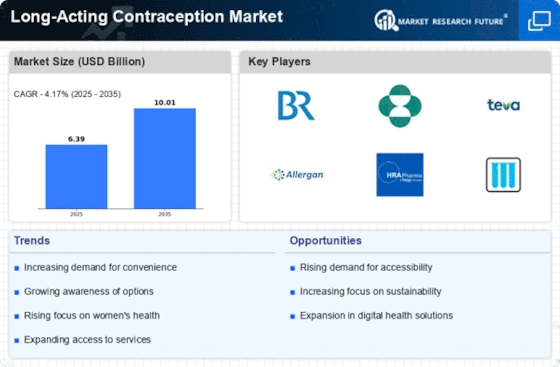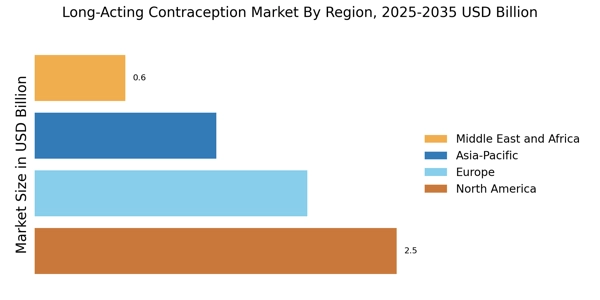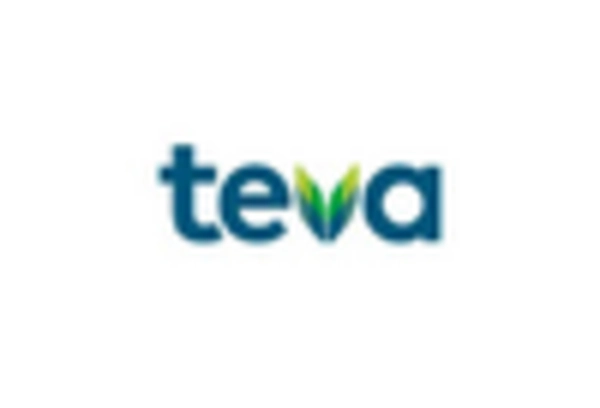Government Initiatives and Funding
Government initiatives aimed at improving access to contraceptive methods are playing a pivotal role in the Long-Acting Contraception Market. Various countries are implementing policies that provide funding for family planning services, which include long-acting contraceptives. For instance, recent reports indicate that funding for contraceptive services has increased by approximately 20% in several regions, facilitating wider access to these methods. Such initiatives not only enhance availability but also promote education about long-acting options, potentially leading to increased adoption rates. As governments continue to prioritize reproductive health, the market for long-acting contraception is expected to expand significantly.
Shift Towards Preventive Healthcare
The Long-Acting Contraception Market is benefiting from a broader shift towards preventive healthcare. Individuals are increasingly recognizing the importance of proactive measures in managing their reproductive health. Long-acting contraceptives, which offer extended protection against unintended pregnancies, align well with this preventive approach. Data suggests that the use of long-acting methods has increased by over 30% in recent years, reflecting a growing preference for solutions that minimize the need for frequent intervention. This trend indicates that as more individuals adopt preventive healthcare practices, the demand for long-acting contraceptives will likely continue to rise, further propelling market growth.
Rising Awareness of Reproductive Health
The Long-Acting Contraception Market is experiencing a surge in awareness regarding reproductive health. Educational initiatives and campaigns are increasingly informing individuals about the benefits of long-acting contraceptive methods. This heightened awareness is likely to lead to a greater acceptance of these methods, as individuals recognize their effectiveness in preventing unintended pregnancies. According to recent data, nearly 50% of women of reproductive age are now aware of long-acting contraceptive options, which is a notable increase from previous years. This trend suggests that as awareness continues to grow, the demand for long-acting contraceptives will likely rise, thereby driving the market forward.
Cultural Shifts and Empowerment of Women
Cultural shifts towards the empowerment of women are having a profound impact on the Long-Acting Contraception Market. As women gain greater autonomy over their reproductive choices, there is a noticeable increase in the demand for long-acting contraceptive methods. This empowerment is often accompanied by a desire for family planning options that allow for better control over fertility. Recent surveys indicate that approximately 60% of women prefer long-acting methods for their reliability and convenience. This cultural transformation suggests that as women continue to assert their reproductive rights, the market for long-acting contraception is poised for substantial growth.
Technological Innovations in Contraceptive Methods
Technological advancements are significantly influencing the Long-Acting Contraception Market. Innovations in the development of new contraceptive devices and formulations are enhancing the efficacy and user experience of long-acting methods. For example, the introduction of new intrauterine devices (IUDs) and implants with improved safety profiles and longer durations of effectiveness is attracting more users. Recent studies indicate that these innovations have contributed to a 25% increase in the adoption of long-acting contraceptives. As technology continues to evolve, it is likely that the market will see further growth driven by enhanced product offerings and increased consumer confidence.

















